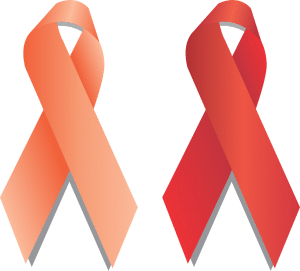In the past, when a person had hemophilia, it meant they had a very short life expectancy, around 20-30 years. Thanks to research, over the past 7 decades, the life expectancy has increased almost 10-fold. Unfortunately, as hemophiliacs get older, other health issues are more likely to arise such as hypertension, obesity, and diabetes. In light of March being Hemophilia Awareness Month, it is important to discuss how the elderly can manage this condition to avoid further issues.

What Is Hemophilia?
Hemophilia is a rare medical condition in which the ability to blood clot and coagulate is reduced. A person with this condition will bleed out severely if they are injured. Normally, a person who does not have this condition, the blood will begin to coagulate (thick and clot) in order to reduce blood from leaving the body when injured.
Symptoms
It is hereditary, and caused by a mutation in the gene for factor VIII. The blood lacks sufficient blood-clotting proteins. Symptoms vary depending on the level of clotting factors. They include:
- Blood in urine or stool
- Nosebleeds without a known cause
- Large or deep bruises
- Pain or swelling in joints
- Excessive bleeding from cuts or injuries
Other Health Issues Associated With Hemophilia

Hemophilia can be very dangerous as you age, especially if you get an injury on your head. This rare condition can be associated with pregnancy, autoimmune conditions, cancer, and multiple sclerosis. Other conditions associated with the condition are:
- Viral infections like HIV & Hepatitis– the antiviral drugs for these conditions can affect the person’s kidneys and liver.
- Liver disease– The leading cause of liver disease in people with hemophilia are those infected with Hepatitis C. The risk of cirrhosis increases over time.
- High Blood Pressure– People with hemophilia are twice as likely to have abnormally high blood pressure.
- Cardiovascular disease– risk factors such as hypertension, high blood pressure, and being overweight can all lead to heart disease.
- Musculoskeletal issues– loss of joint and muscle function is common in people with hemophilia. This puts them at a high risk for osteoporosis.
- Kidney disease– this causes hypertension which could increase brain hemmorage.
Tips To Manage Hemophilia
In order to stay on top of hemophilia as you get older, it is important to stay as healthy as possible. You should:

- Stay active
- Check your blood pressure regularly to keep it on point
- Take calcium and vitamin D supplements to prevent osteoporosis
- Do not take daily aspirin to prevent heart issues, because aspirin thins out your blood more.
- Lower your cholesterol
- Check blood sugar levels in order to prevent diabetes, or keep it under control.
- Keep a healthy weight and diet to improve your quality of life and prevent heart disease, diabetes, and other health issues.
Hemophilia, if extreme, can cause death. As you age, the more you are at risk for serious complications, especially if you have other health conditions such as hypertension. Seek emergency care, or your doctor if you have an injury that won’t stop bleeding, or have joints that are hot to the tough and painful to bend. Practice the tips provided in order to help manage hemophilia, so you can live a longer, healthier life.
